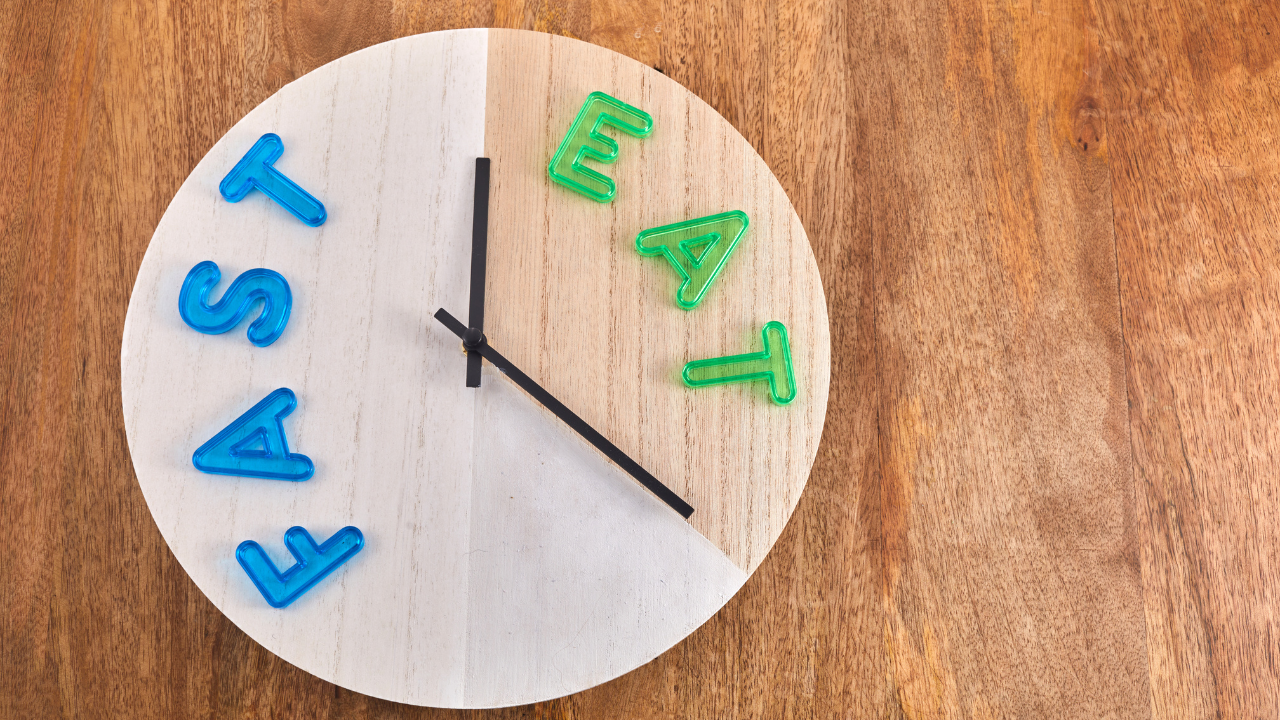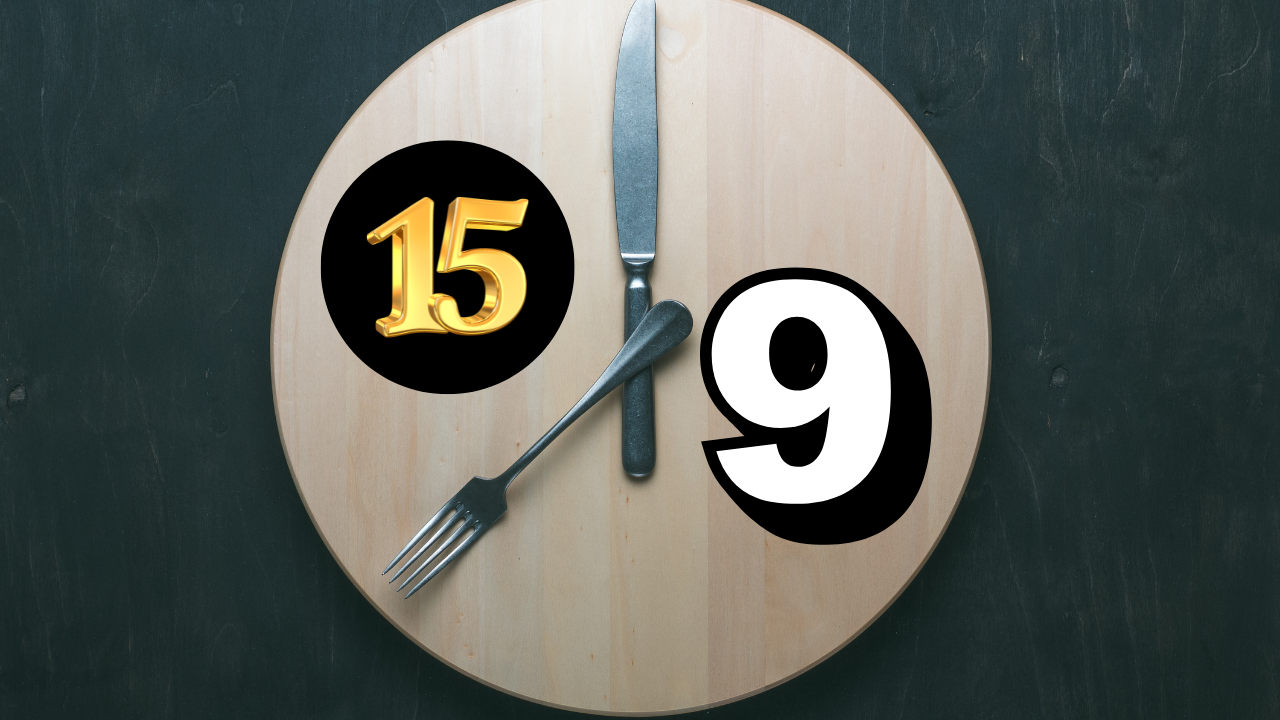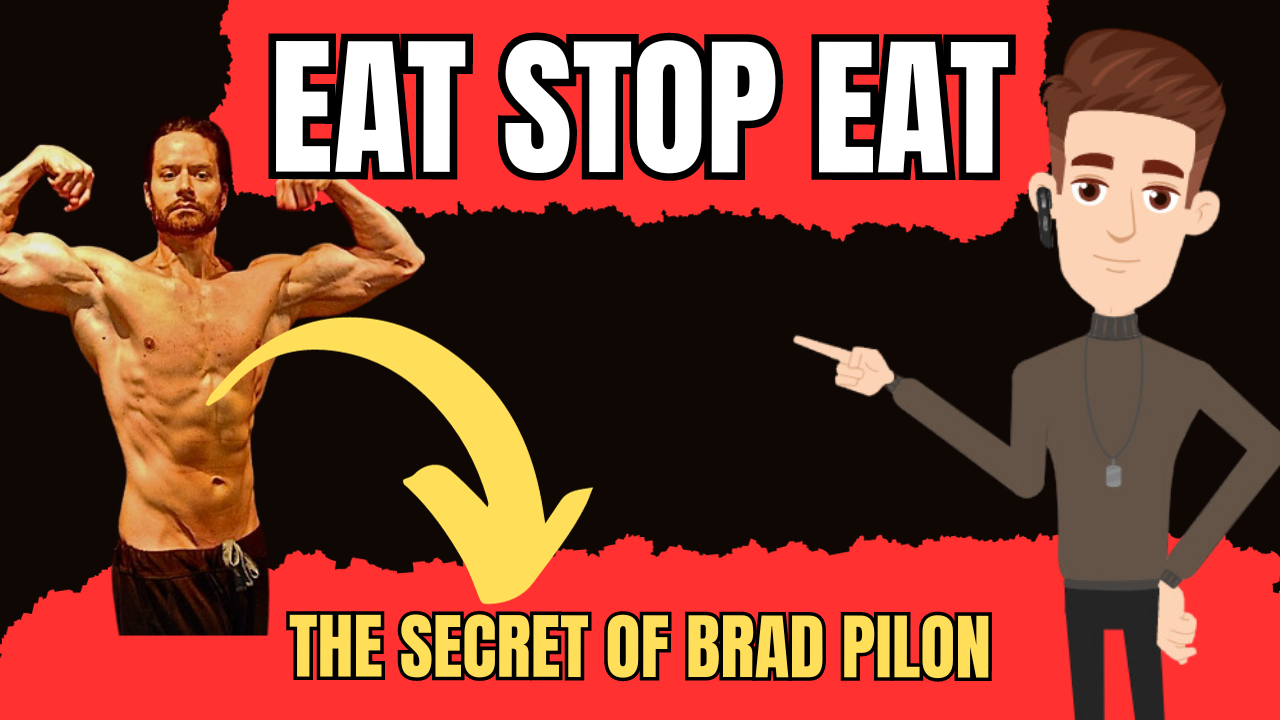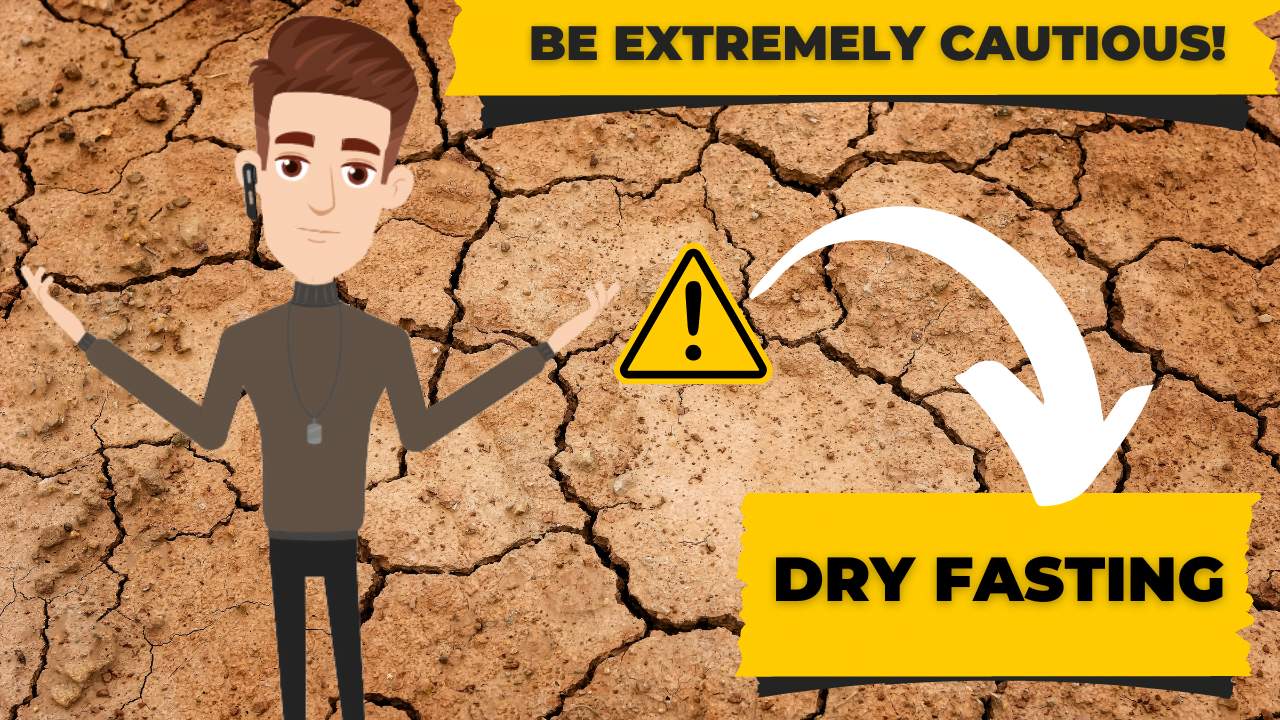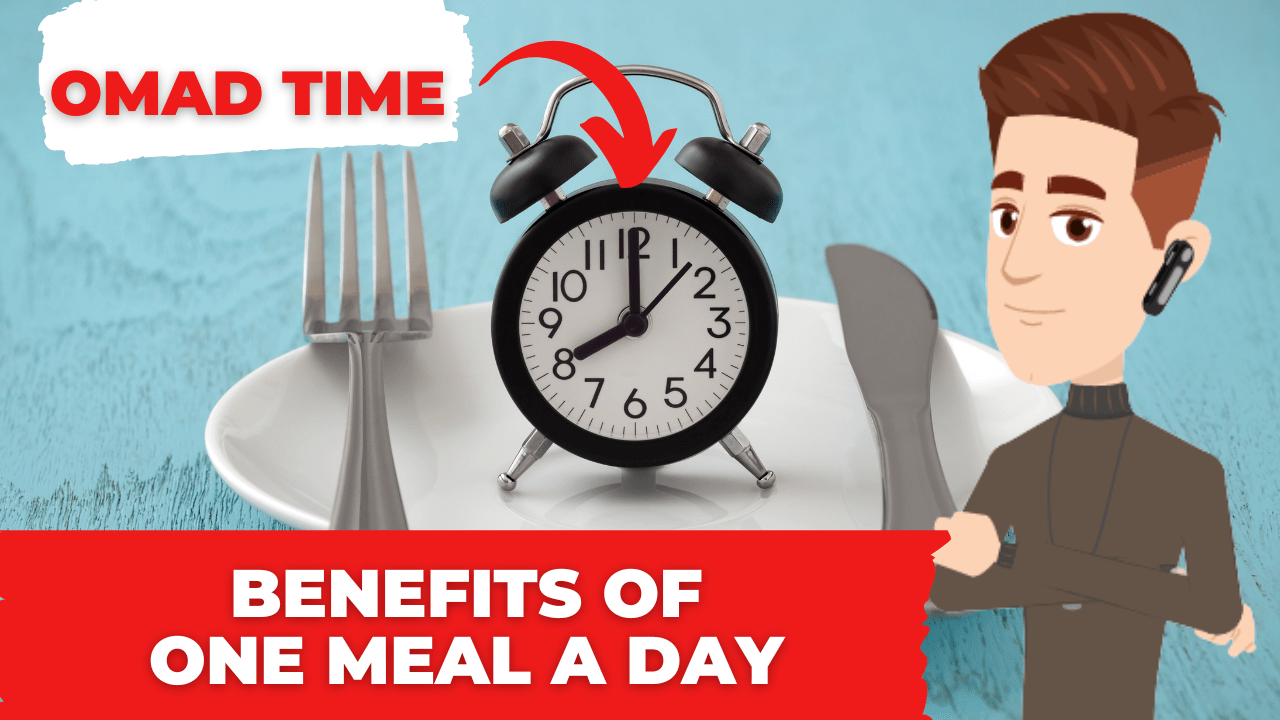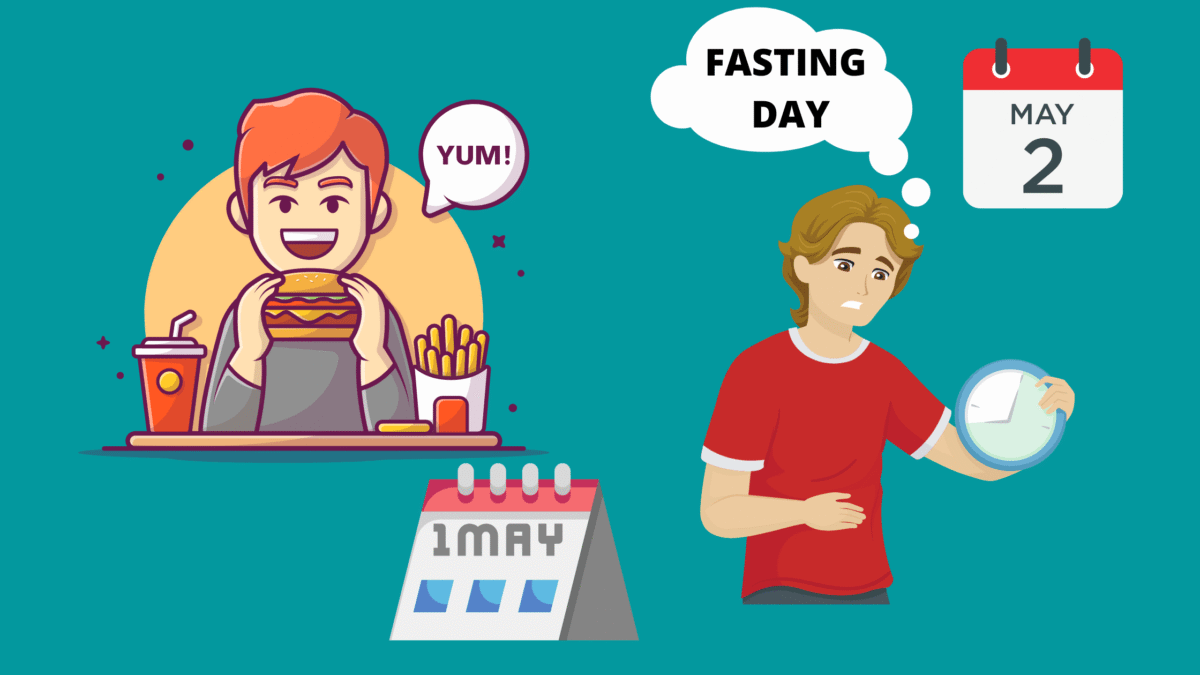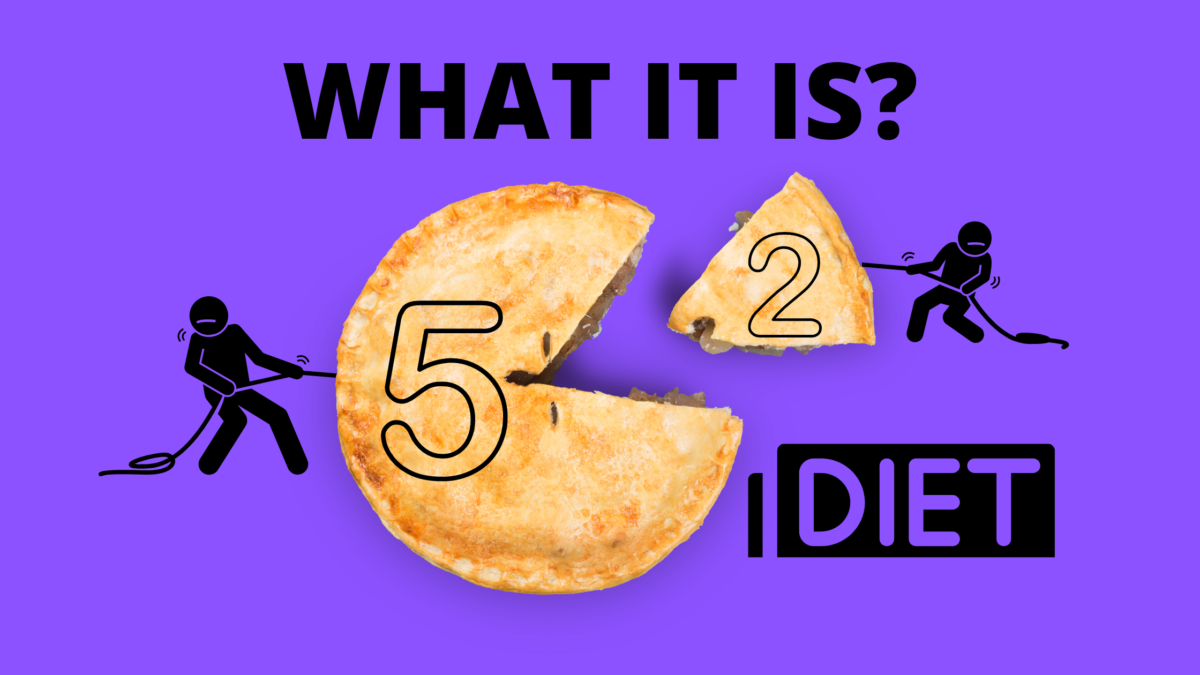Last updated on August 15th, 2024 at 05:42 am
Quick Links
Have you ever heard the word OMAD? If not, reading this article will significantly help you if you are serious about losing weight.
Many swear that eating one meal a day is the best way to lose weight and improve their health. OMAD is another name for the one-meal-a-day diet.
People who follow the OMAD diet usually limit their calorie intake to a single meal or a short window of time. The meal itself and when it is eaten will depend on the person.
The health benefits of OMAD are mostly related to fasting when you don’t eat for a certain amount of time and calorie restriction in general.
How Does The OMAD Diet Work?
There are many different kinds of intermittent fasting and many ways to do OMAD.
For example, you could eat just one meal and then go without food for the rest of the day, or you could eat just one meal and eat less during fasting.
This diet makes you eat less than you burn, which can help you lose weight.
Other health benefits of fasting include the possibility of lowering risk factors for heart disease, lowering blood sugar, and reducing inflammation. (1)
But compared to other ways to fast, like the 16/8 method, which involves eating for 8 hours and then not eating for 16, eating just one meal a day is one of the most potent ways to fast.
Some popular diets say that you should only eat one meal a day. On the Warrior Diet, for example, a person only eats one meal a day, cycling between long periods of not eating and short periods of eating.
Most people who follow OMAD only eat dinner, but some choose to eat breakfast or lunch as their one meal. Some versions of this way of eating let you have one or two snacks and one meal.
On the other hand, some people who follow OMAD don’t eat anything during their fasting window. They only eat calories at their chosen meal, which usually lasts about an hour.
Note: Before we continue, I have a special gift for you. I call this the IFLG, which stands for Intermittent Fasting Link of Gold. This link will give you access to all of our articles and product recommendations about intermittent fasting. Here is your IFLG link ► IFLG
OMAD diet in weight loss
To lose weight, you need to have less energy than you use.
You can do this by either using more calories than you eat or eating less than you burn. Cutting calories will make you lose fat no matter how you do it.
People who use the OMAD method are likely to lose weight because they eat fewer calories overall than they would on a regular eating schedule.
For example, a study of healthy adults found that limiting calorie intake to a 4-hour window in the evening led to much more fat loss than eating three meals throughout the day. (2)
A study has also shown that intermittent fasting, including extended fasting periods like OMAD, is likely to lead to weight loss.
However, it doesn’t seem to work better than traditional ways of cutting calories, like eating less at each meal. (3)
A study of 50,660 people showed that those who ate only one or two meals daily had a lower body mass index (BMI) than those who ate three meals daily.
The study also found that people who fasted for 18 hours or more overnight lost less weight than those who fasted for less time. (4)
However, intermittent fasting, not just the OMAD, has the same weight loss benefits.
Also, powerful ways to fast, like OMAD, may have side effects that people need to consider. It includes making people feel more hungry and causing their metabolism to change incorrectly. (5)
Benefits of OMAD diet
Research has shown that fasting is good for your health in many ways besides helping you lose weight. For instance, fasting may help lower blood sugar and some risk factors for heart disease, such as LDL (“bad”) cholesterol. (6)
Markers of inflammation, like C-reactive protein, have also been shown to go down when people fast.
Also, fasting may be good for the health of the nervous system in unique ways. Animal studies show that it may slow the loss of neurons and help people live longer. (7)
But even though these possible benefits sound good, it’s important to remember that they are linked to fasting in general, not OMAD in particular.
Some studies show that the OMAD pattern may be worse for your health than other ways to fast that aren’t as strict. (8)
To know more about the benefits of OMAD diet, you can read our blog post about the 20+ benefits of eating one meal-a-day by clicking HERE
Results of OMAD Diet
SYKTOHEALTH Follower Sarah Thumb says:

"I would like to share my incredible experience with OMAD (One Meal a Day) fasting. It has been a life-changing journey for me, and I can't help but praise its remarkable benefits. OMAD fasting has revolutionized my health and transformed my lifestyle.
Firstly, OMAD has boosted my energy levels to new heights. By limiting my eating window to just one meal a day, my body has become more efficient in utilizing its energy reserves. This newfound vitality has allowed me to accomplish more in my day, both personally and professionally.
Secondly, OMAD has helped me achieve my weight loss goals. By embracing this intermittent fasting method, I have witnessed a significant reduction in body fat and a leaner physique. OMAD has given me a sense of control over my eating habits, enabling me to make healthier food choices.
Lastly, OMAD fasting has enhanced my mental clarity and focus. With fewer distractions from constant meal planning and snacking, I have experienced improved cognitive function and enhanced productivity throughout the day."
FREE eBook
If you’ve heard enough and are feeling that Intermittent Fasting is the right thing for you, just click the image below to get our FREE eBook which is the same eBook that Sarah Thumb started with to reach her dream weight.

Potential Side Effects Of OMAD
OMAD (One Meal a Day) has gained popularity as a form of intermittent fasting, but it’s important to be aware of potential side effects that may arise from this eating pattern.
- Nutritional Deficiencies: Restricting food intake to just one meal a day can make it challenging to consume a balanced diet, potentially leading to deficiencies in essential nutrients like vitamins, minerals, and fiber.
- Blood Sugar Imbalance: OMAD can disrupt blood sugar levels, especially in individuals with diabetes or insulin resistance. Consuming a large amount of food in one sitting may cause a rapid increase in blood sugar levels, followed by a steep drop, leading to fatigue, dizziness, and mood swings.
- Increased Hunger and Food Obsession: Extended periods of fasting can trigger intense hunger and preoccupation with food, making it challenging to sustain the OMAD eating pattern in the long term.
- Digestive Issues: Consuming a large meal in a short period can overload the digestive system, leading to bloating, indigestion, and discomfort. It may also affect bowel regularity and contribute to constipation.
- Impact on Metabolism: When you fast for an extended period of time, your metabolism may slow down, which can make it more difficult for you to lose weight or keep a healthy weight.
Here is the list of all the potential side effects that you might experience while fasting:
- Excessive keto fatigue
- Nausea and headaches due to low blood sugar
- Feeling weak
- Persistent dizziness
- Having a slow thyroid
- Hair loss due to a lack of nutrients
- Kidney Stone
- Keto Flu and Cold
- Diarrhea
- Sleep disturbances such as nightmares and insomnia
- Experiencing brain fog
- High cholesterol
- Gout
To know more about the solution to these potential side effects, you can read our blog post below.
Foods to eat and what to avoid
No matter what diet you choose, most of what you eat should be whole, nutrient-dense foods.
Usually, most doctors don’t recommend eating only one meal a day. But if you choose to do so, it’s essential to make sure you’re eating a variety of healthy foods, such as:
- Fruits like berries, oranges, and bananas
- Vegetables like kale, broccoli, cauliflower, asparagus, and peppers
- Starchy vegetables and grains like sweet potatoes, butternut squash, oats, quinoa, and barley
- Healthy fats like avocados, olive oil, and unsweetened coconut
- Legumes like peas, chickpeas, lentils, and black beans
- Seeds, nuts, and nut butter like cashe
Cut back on highly processed foods like:
- fast food
- sweet baked goods
- white bread
- sweet cereals
- soda
- chips
These foods don’t have much nutritional value, and if you eat them too often, you may gain weight and be more likely to get sick.
During fasting, people on the OMAD diet should eat as few calories as possible.
The strict OMAD diet must cut out all calories. You can still drink water and other drinks without calories during a fast.
Some people choose to eat snacks during the day that are low in calories and high in protein, like:
- egg whites
- tuna
- chicken
Syktohealth conclusion
The OMAD diet may be a popular way to lose weight, but it’s probably not good for your health.
Fasting in general, especially long-term fasting, may be suitable for health in several ways. But using a more practical method can also reach the same health benefits.
Suppose you are overeating and want to lose weight. In that case, more sustainable diets include 16/8 intermittent fasting or eating a healthy, lower-calorie diet.
Again, most doctors don’t recommend eating just one meal daily because it can harm your health.
Talk to a trusted health care professional for advice before you start this way of eating.
What to Read Next?
Related Articles
Ali Webster is a seasoned researcher, communicator, and Registered Dietitian with a diverse background encompassing government, nonprofits, academia, and health care. The core belief is that science should be made accessible, understandable, and relevant to all individuals, driving the motivation behind their work. Proficient in conducting and interpreting research to shape nutrition policy decisions, the individual also excels in nutrition and health communication, consumer research survey development and implementation, and clinical nutrition. Holding a Doctorate of Philosophy with a focus on Nutrition and Epidemiology from the University of Minnesota, their dietetic internship emphasized medical nutrition therapy.



